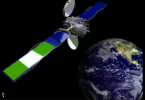There is no doubt that Nigeria is poised to benefit from emerging technologies of the 21st Century. We know that technology is a potent tool for advancing the nation’s economy and transforming the society for the better. But in what specific ways can leveraging technology to make a difference in Nigeria happen? We intend to explore some of the ways leveraging technology to make a difference can benefit Nigeria as we read along.
Furthermore, it is important for the Nigerian government to create an enabling environment for technology to thrive. There is need to establish a strong technology policy; and give incentives to encourage the growth of problem solvers in the technology world.
Ways in which Leveraging Technology to Make a Difference in Nigeria can Occur
Access to a Vast Knowledge Pool
The rise and proliferation of the internet, mobile and computer networks sparked a revolution. It redefined the meaning and extent of communications; along with giving access to a vast pool of information worldwide. Now individuals have a right to create, find and use all kinds of information, but within ethical limits – as data privacy, accuracy and consent are equally important.
Accurate information is now the currency with which individuals, businesses, governments, and various institutions operate and succeed. Nigeria cannot afford to be left out of the knowledge revolution. No entity can survive the modern world without accurate data to support their decisions.
Fostering Entrepreneurship and Innovation
Business owners in Nigeria and beyond are leveraging technology to make a difference in the efficient management of resources, workers and operations. The more efficient they manage their businesses, the more time and opportunity they have to become innovative and creative. As entrepreneurs create solutions and drive innovation, they create more jobs and revenue. These businesses also pay taxes, contribute to social responsibility, and further drive the economic growth of the nation.
Most of these businesses are small and medium-sized enterprises (SMEs) which can benefit immensely from government and private sector support initiatives. It can come in the form of business loans, grants, and tax incentives to help these SMEs grow and diversify their operations successfully.
Remote Connectivity
One other means of leveraging technology to make a difference in Nigeria is through remote connectivity. Individuals, professionals and business entities can connect and work together from remote locations, both in real-time and asynchronously.
Remote work is no longer new. Communication, transfer of files, teamwork, managing projects, and conducting meetings and trainings via online and mobile channels are now easy and cheap. It has led to a significant reduction in fuel, transportation, and other operational costs, along with easing work-related stress. This cost and effort reduction factor in itself is enough to improve the productivity of any focus-driven worker or organization in Nigeria. With these in place, it is not so difficult to beat the effects of inflation.
Provision of Better Education and Learning Resources
One of the greatest contributions of technology to society is enhanced education and learning opportunities. It is now much easier and cheaper to acquire both practical and theoretical knowledge and skills from anywhere across the globe. Armed with digital tools and the internet, there are hundreds of videos, audios, e-books and online classes to aid anyone to acquire valuable skills.
This trend is promoting a fast-growing pool of available skilled workers (right from undergraduate level) in Nigeria. An increasing number of people (both graduates and the less educated) are better equipped to manage the modern workplace than in the last two decades thereabout. Though it is still work in progress, Nigerians are gradually learning to stand and compete favourably with their peers worldwide.
More Effective Collaborations
Collaborations across the internet is now a standard practice amongst many professionals and entrepreneurs, both in Nigeria and worldwide.
Leveraging technology to make a difference in Nigeria is evident in the growing number of collaborations and partnerships that make use of digital technology.
What if business partners, each domiciled in another continent or country, can conduct online transactions and co-work based on trust? Stakeholders from across different sectors of the Nigerian economy can also collaborate to create a thriving ecosystem where innovation and entrepreneurship will succeed. Technology tools can unite diverse people from the academic community, business world, government, industries, NGOs, world bodies and technology companies to work together.
The benefits of such an ecosystem to Nigeria’s economic growth can be potentially huge if encouraged. Such collaborations and partnerships will encourage great thinkers to come together and build impactful, far-reaching solutions for the nation.
Advancing Digital Literacy and Skill Acquisition
Modern digital technology tools are now designed to be inclusive. Indigenous language translation; progressively cheaper data and phones; and promotion of free or cheaply-provided digital literacy and skills have come to the rescue. They have helped to make technology more available to as many people as possible – including rural dwellers, the poor and underserved citizens. These category of persons can now access more online tools as well – for instance, banking services provided by fintechs.
Thus, the problem of digital divide and how it has slowed down Nigeria’s economic growth in previous years, is gradually being solved. More members of the society now have the means to contribute and benefit all at once from modern technology.
Solving Critical Societal Problems
The contributions of technology to solving some of the most pressing problems of human society cannot be quantified. Technology has been a huge blessing. Now we have global and local innovators and policy makers who work together to resolve social challenges with technology.
These include food and environmental sustainability, climate change, varied forms of inequality, energy shortages, healthcare, governance, resource control and many more. These solutions are designed to improve the quality of life on Earth, now and in the generations to come.








